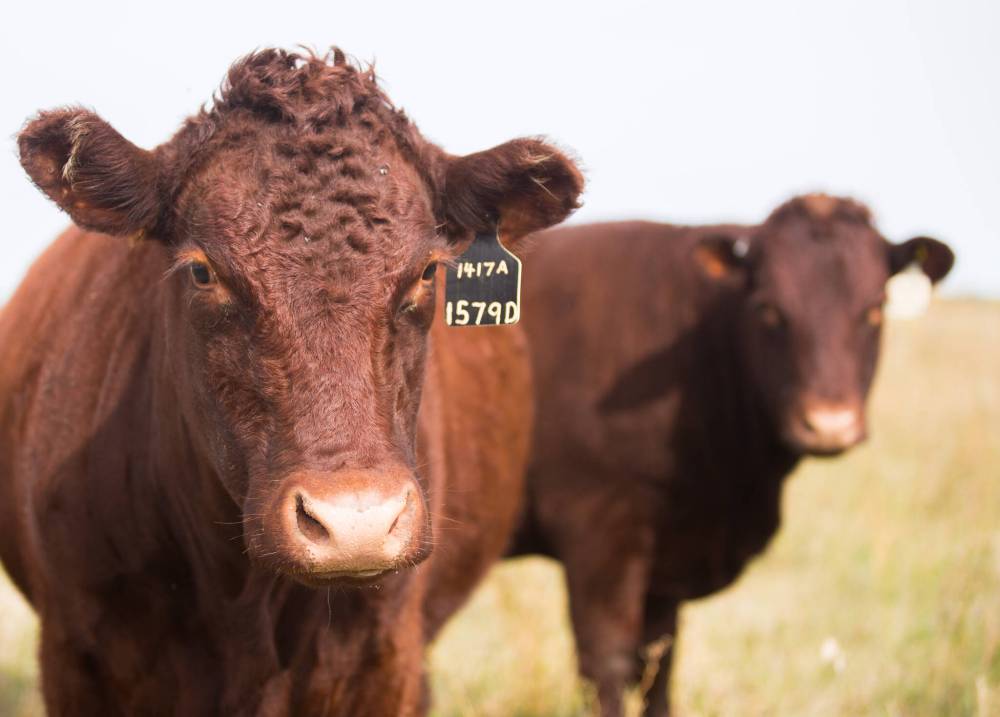Tax deferral program available for some Manitoba ranchers
Advertisement
Read this article for free:
or
Already have an account? Log in here »
We need your support!
Local journalism needs your support!
As we navigate through unprecedented times, our journalists are working harder than ever to bring you the latest local updates to keep you safe and informed.
Now, more than ever, we need your support.
Starting at $15.99 plus taxes every four weeks you can access your Brandon Sun online and full access to all content as it appears on our website.
Subscribe Nowor call circulation directly at (204) 727-0527.
Your pledge helps to ensure we provide the news that matters most to your community!
To continue reading, please subscribe:
Add Brandon Sun access to your Free Press subscription for only an additional
$1 for the first 4 weeks*
*Your next subscription payment will increase by $1.00 and you will be charged $20.00 plus GST for four weeks. After four weeks, your payment will increase to $24.00 plus GST every four weeks.
Read unlimited articles for free today:
or
Already have an account? Log in here »
Hey there, time traveller!
This article was published 21/10/2023 (756 days ago), so information in it may no longer be current.
Farmers and ranchers in some parts of Manitoba whose production has suffered from extreme weather conditions this year can now take advantage of a livestock tax deferral for 2023.
On Friday, federal Minister of Agriculture and Agri-Food Lawrence MacAuley announced that designations in regions in Manitoba, Saskatchewan, Alberta and British Columbia would be eligible.
The livestock tax deferral provision allows farmers who sell part of their breeding herd due to drought or flooding in prescribed drought or flood regions to defer a portion of sale proceeds to the following year.

To defer income, the breeding herd must have been reduced by at least 15 per cent. Where the breeding herd has been reduced by at least 15 per cent but less than 30 per cent, 30 per cent of income from net sales can be deferred. Where the breeding herd has been reduced by 30 per cent or more, 90 per cent of income from net sales can be deferred.
In a year in which a region has been prescribed, income from livestock sales is deferred to the next tax year when the income may be at least partially offset by the cost of reacquiring breeding animals, thus reducing the potential tax burden.
In the case of consecutive years of drought or excess moisture and flood conditions, producers may defer sales income to the first year in which the region is no longer prescribed.
Prescribed regions are designated, on the advice of the minister of agriculture and Agri-Food Canada to the minister of finance, when forage yields are less than 50 per cent of the long-term average as a result of drought or flooding in a particular year.
To be designated, the affected area must have recognized geo-political boundaries – such as municipalities or counties – and be large enough to have an impact on the industry. Impacts on individual municipalities/regions would not result in a designation.
A preliminary list of Prescribed Drought and Flood Regions is usually completed in the early fall, for those regions where it appears that the criteria will be met. Since forage yield information is not final until later in the year, the designations are made primarily on the basis of spring moisture and summer rainfall and is supplemented with estimates of forage yield.
Assessments of areas are reviewed in discussions with federal and provincial staff. A final list of Prescribed Drought and Flood Regions, including previously announced regions, is usually made in December when finalized forage yield information is available.
In Westman, the regions include the Municipality of Lorne, the Municipality of Louise, the Municipality of Norfolk-Treherne, the Municipality of North Norfolk, the Rural Municipality of Victoria, and the Municipality of Westlake-Gladstone.
In addition to the Livestock Tax Deferral, MacAuley also announced that the federal government has allocated $219 million through the Agri Recovery Framework to support farmers and ranchers in B.C., Alberta and Saskatchewan. The funding is intended to help them recover and ensure they have the tools they need to continue to be resilient in the face of natural disasters and extreme weather events.
At this time, the Manitoba government has not requested that a joint assessment be initiated for the impacts of the drought on livestock producers in the province, said Samantha Seary, a media relations officer with Agriculture and Agri-Food Canada in response to an email from the Sun.
>> mleybourne@brandonsun.com
>> X: @miraleybourne
